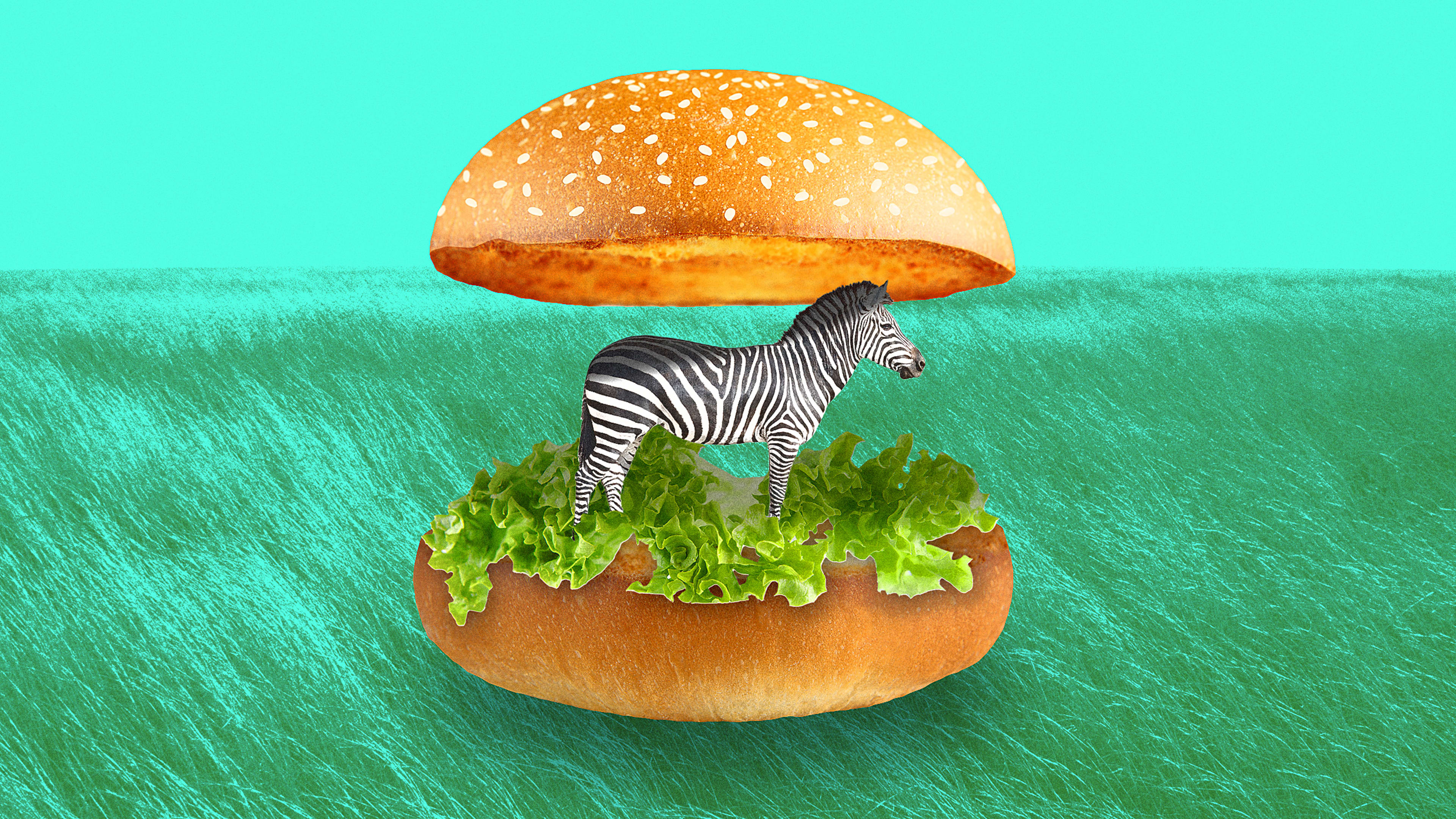If you follow the food tech space, cell-cultured beef, chicken, and fish—that is, real meat grown from animal cells rather than slaughtered animals—are practically old hat by now. Berkeley-based Upside Foods just raised a whopping $400 million in funding as the company prepares to bring its first consumer product to market: cell-cultured chicken, made in partnership with chef Dominique Crenn. Elsewhere in the San Francisco Bay area, SCiFi Foods took in $22 million from investors as the company develops a scalable process for its premier product, which will be hybrid plant-based and cell-cultured beef. In Israel, food tech company SuperMeat recently received a grant to develop an open-source platform that’s meant to help the entire cell-cultured meat industry expand while keeping costs down.
Suffice it to say, there are a lot of companies working toward—and money being invested in—making cruelty-free but biologically identical chicken, pork, beef, and seafood products for popular consumption. What you may not know is that there are also a handful of companies using cell-cultivation strategies to make ethical and commercially available forms of meats that are . . . less familiar, to say the least.
London-based company Primeval Foods focuses exclusively on cultivating exotic meats, such as lions, tigers, and zebras. Similarly, the Australian company Vow Foods is looking to address the problems of our modern food systems by exploring the possibilities of cell-cultivated zebra or elephant meat. In Europe, food tech company Paleo has a patent pending for cultivated strains of the protein heme (which is said to be what makes meat taste meaty) that are bioidentical to that of several common livestock animals, and one, well, not so common: the long-extinct wooly mammoth.
From a culinary standpoint, I understand why chefs, foodies, and adventurous eaters would be excited about this prospect: We could theoretically get to try meats that have historically been off-limits due to laws, customs, or—in the case of the wooly mammoth—extinction. Best of all, it wouldn’t require the slaughter of any animal, let alone ones that are protected from hunting or those many of us would simply feel weird about eating. Lots of people might be curious to try, say, Swiss dog jerky if they could do it without the ethical discomfort of killing man’s best friend.
Cell-cultivated meat is certainly a solution to the deleterious environmental and animal-welfare effects of livestock farming that doesn’t require a major upheaval in the way humankind eats. Naysayers are constantly pointing to declining sales figures for plant-based meat products, and some people are so opposed to the prospect of giving up their carnivorous ways that they would rather “die young” than go vegetarian. Cell-cultured meat could, in theory, solve all of these problems: reduce livestock farming and animal suffering, and address global hunger, without anyone actually having to give up their favorite foods.
Cell-cultivated beef, chicken, pork, and fish are all poised to hopefully solve the problems caused by their respective industries. But given there still isn’t a comparable-size industry behind the sale of, say, lion meat, it’s hard to argue that exotic meat cultivation is solving any current societal problems, exactly. But could it be causing new ones?
At best, developing cell-cultivation processes for exotic meat is a superfluous endeavor. It seems unnecessary, maybe even wasteful, to pour money into developing slaughter-free panther meat when we don’t even have any commercially viable systems for making and selling cell-grown chicken or beef yet. When ecosystems are under immediate threat because of our dietary patterns, using the cutting edge of food science to develop a novelty product for fancy restaurants feels like a poor use of resources.
Furthermore, bringing exotic animals into conversations about cell-cultivated meat is a questionable public relations move. It’s true that tiger and wooly mammoth meat make for splashy headlines, and that attention could draw funding into the cell-cultivated meat industry at large. But to many consumers, the idea of “lab-grown” meat is still anything but appetizing. Plenty of people are still skeptical about the very concept, and aren’t ready for what they see as a science experiment to show up on their plates.
There are arguments in favor of developing these exotics meats. Undoubtedly, companies in this space would help bring in additional investment, and perhaps that would advance the broader cellular-agriculture tech to develop. For example, certain cell types, such as those belonging to exotic species, could theoretically be easier to culture than more traditional ones. Then there’s the fact that imitating existing products is inherently hard, so it might be more strategic to instead create new tastes altogether where there isn’t any existing palate competition. But I don’t think these pros outweigh the cons, at least not at this early stage of development.
It may be cynical, but I think valid, to wonder if giving people a taste for new blood (literally!) would lead to increased practices of animal cruelty. Say lion meat becomes a niche, exclusive luxury product. Those outside of the super-elite are likely to become curious as to what the hype is all about. Maybe diners really like it, and the popularity of lion meat spreads like wildfire. Do we really believe that wouldn’t incentivize poaching activity, or even possibly commercial farming and slaughtering of lions?
At its best, science and innovation can make sweeping changes for the betterment of society. Cell-cultivated meat, I believe, could be an incredible opportunity to reduce the amount of human-induced suffering in the world, and a practical way to expand the circle of our compassion. But by introducing even more animal species as food, rather than dignified coinhabitants of planet Earth, we’re not growing our compassion. We’re shrinking it.
Recognize your brand’s excellence by applying to this year’s Brands That Matter Awards before the early-rate deadline, May 3.
